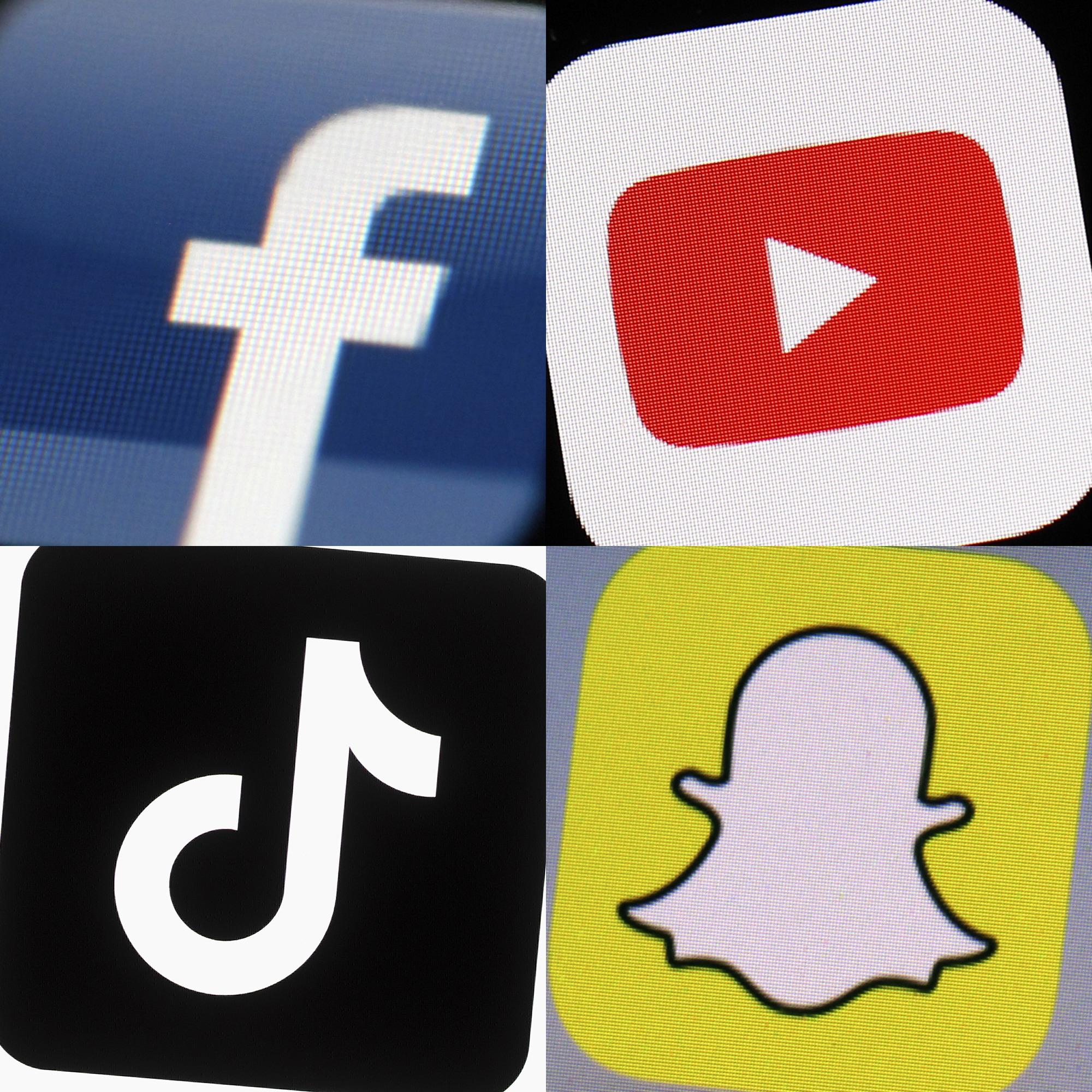 This combination of 2017-2022 photos shows the logos of Facebook, YouTube, TikTok and Snapchat on mobile devices. (PHOTO / AP)
This combination of 2017-2022 photos shows the logos of Facebook, YouTube, TikTok and Snapchat on mobile devices. (PHOTO / AP)
BRUSSELS - A batch of very large online platforms (VLOPs) and very large online search engines (VLOSEs) such as Google, YouTube, Amazon or TikTok operating in the European Union (EU) have taken measures to meet the requirements of the Digital Services Act (DSA), which entered into force on last Friday.
Nick Clegg, president of Meta, owner of Facebook and Instagram, welcomed on Aug 22 the DSA's principles of transparency, accountability and user empowerment. He announced additional transparency measures and additional user options in order to meet the company's new obligations under the DSA.
Pinterest said that it provides a link for users to report content that may be illegal under EU law, that a single point of contact has been established for local authorities to get in touch if needed, and that users can contest a decision made by Pinterest on content and user accounts
Laurie Richardson and Jennifer Flannery O'Connor, vice-presidents of Google, said that Google has expanded ads transparency, as well as data access for researchers. The company said it has created a new Transparency Center, is expanding transparency reporting, and has committed to analyzing risks.
Booking.com said it now has a dedicated page indicating if the number of its monthly users reaches 45 million (the DSA's benchmark for qualifying as a VLOSE) and has created a repository containing information about the advertizements the company shows on its website.
ALSO READ: EU aims to rein in US tech firms with threat of fines, break-up
Pinterest said that it provides a link for users to report content that may be illegal under EU law, that a single point of contact has been established for local authorities to get in touch if needed, and that users can contest a decision made by Pinterest on content and user accounts.
According to Snapchat, users now have the ability to control the content they're shown; a new notification and appeals process has been introduced for content or account removals. It has also updated its advertizing and appointed DSA compliance officers.
TikTok said it now has 134 million active users per month. The platform said that over 1,000 people had worked to ensure compliance with the DSA. Key changes include an additional reporting option, which comes with an additional team of moderators and legal specialists; an option to turn off personalization for popular feeds; the creation of a commercial content library; API (application programming interface) research access for European academics to use TikTok; commercial content labeling; and limited personalized ads for users younger than 18.
The DSA aims at regulating the obligations of digital services connecting consumers to goods, services or content in order to protect users online.
ALSO READ: Google vows more transparency on ads as new EU rules kick in
"With strict rules on transparency and accountability, our Digital Services Act aims to protect our children, societies and democracies," European Commission (EC) President Ursula von der Leyen said on Friday.
New obligations have been created for online platforms under the DSA, which should reduce harm and counter risks. These include strong protection for users' rights online, and new transparency and accountability rules.
These online services now have to assess and mitigate their systemic risks and to provide robust content moderation tools.
The DSA encourages platforms to share their data with researchers. This should help understand and monitor better how platforms take action to tackle risks, such as hate speech.
By Feb 17, 2024, the national authorities of the EU member states will have to appoint Digital Services Coordinators, who will work hand in hand with the European Commission to enforce the DSA.
Online services that do not comply may face penalties that can amount to 6 percent of their global turnover. A court may also suspend platforms if they refuse to cooperate.
On April 25, the EC published a list of 19 VLOPs and VLOSEs. The designation "very large" indicates that these platforms or search engines have at least 45 million active users per month.
The VLOPs in the list are: Alibaba AliExpress, Amazon Store, Apple AppStore, Booking.com, Facebook, Google Play, Google Maps, Google Shopping, Instagram, LinkedIn, Pinterest, Snapchat, TikTok, Twitter, Wikipedia, YouTube and Zalando. The two VLOSEs are: Bing and Google Search.
By Feb 17, 2024, all other online platforms and search engines operating in the EU will have to comply with the DSA.


